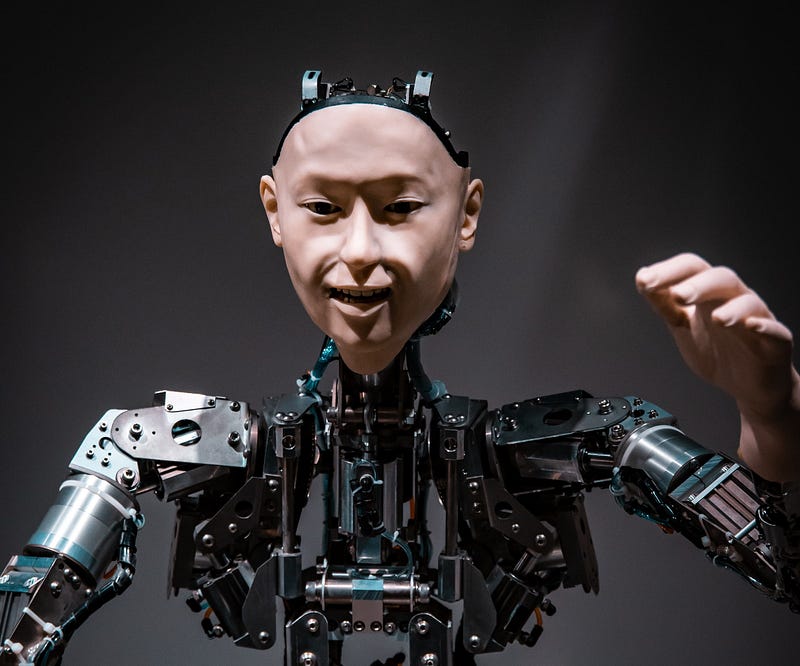Is ChatGPT the Future of Work or a Cause for Concern?
Written on
The Rise of ChatGPT
Have you heard about ChatGPT receiving a B grade on a Wharton Business School examination? This revelation has raised alarms, particularly among academics. Are we witnessing the birth of undetectable cheating methods in educational institutions? Additionally, could ChatGPT potentially displace millions of jobs, ushering in a change akin to the industrial revolution?
Let’s delve into what OpenAI’s ChatGPT truly is. Sabrina Ortiz from ZDNet explains:
ChatGPT is an AI-driven natural language processing tool that facilitates human-like interactions and various tasks through a chatbot. This language model can respond to inquiries and assist in creating emails, essays, and even coding.
I can attest to this definition from my own experience with ChatGPT, which is currently accessible for free on the web. Simply visit ChatGPT Online: AI Advanced Chatbot by OpenAI. However, be prepared for potential wait times due to high traffic.
I've encountered poems crafted by ChatGPT that surpass my own abilities. It also raises questions about its potential in the legal field. When I asked ChatGPT if it could assist lawyers in researching and drafting legal documents, it affirmed that it could. It then inquired about the parties involved, the nature of the dispute, and their locations, producing a concise case summary along with an opinion on the likely court outcome.
What about judges? ChatGPT could analyze evidence and testimonies within the legal framework and generate unbiased decisions. While this idea is unsettling, many facing legal issues might prefer the objectivity of ChatGPT over a human judge.
Moreover, if ChatGPT proves to be impartial and objective, could it also take on the role of Congress or even the presidency? A Congress run by ChatGPT would be free from the usual political antics and scandals, allowing for a more stable governance.
However, how might ChatGPT regulate major tech corporations? Would it recognize any potential conflicts of interest?
Skepticism Surrounding ChatGPT
Not everyone is as enthusiastic about ChatGPT. Yann LeCun, Meta’s chief AI scientist, labeled it as “not particularly innovative” and “nothing revolutionary.” This skepticism is understandable, given that ChatGPT is developed by OpenAI, a competitor to Meta.
Yet, it is intriguing that while LeCun is not a proponent of ChatGPT, he revealed that Meta is also working on a similar project aimed at generating “generative art,” which he believes will be significant. Is a technological revolution on the horizon?
One must tread cautiously in the face of new technology. Perhaps the excitement surrounding OpenAI mirrors the disappointments experienced with Facebook’s "Metaverse." AI is indeed relevant to both realms.
Pragmatic Perspectives on AI
Even if ChatGPT is not the groundbreaking technology some claim it to be, it foreshadows significant advancements in artificial intelligence. By the end of this decade, AI may not only render numerous jobs obsolete but also introduce novel economic models to redistribute wealth generated by AI and its robotic counterparts to displaced workers.
This new technology will require us to rethink how we control it so that it does not strip humans of purpose or value. A society with widespread joblessness could face serious mental health challenges. Moreover, if machines can produce art that is deemed superior, humanity may lose a vital avenue for self-expression and meaning.
Given the rapid development of AI, we must proactively consider how to establish a harmonious relationship between advanced AI and humanity. Who is best suited to tackle this challenge? My suggestion would be philosophers, although a multidisciplinary approach might yield better results. I wonder if ChatGPT would arrive at the same conclusion if prompted.
Author’s Note: This article was written independently, with no AI assistance beyond the use of Grammarly.

Chapter 2: The Impact of AI on Employment
In the video titled "Will ChatGPT Replace Us? Or You?", various experts discuss the implications of AI technology on the workforce and society.
The second video, "ChatGPT Will Not Replace Us... YET!", explores the current limitations and future potential of AI in our daily lives.